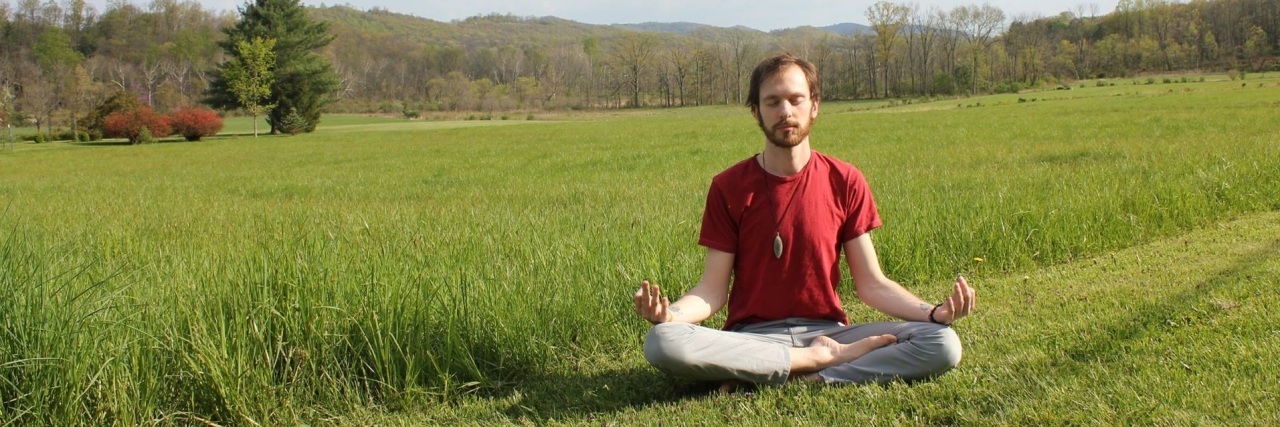4 Crucial Concepts That Helped When I Struggled With Meditation
Let’s talk self-care for a minute, shall we?
I’d like to talk about one of the most overlooked forms of self-care: Meditation. For me, meditation was one of the most difficult of my practices to develop, and I still find it uncomfortable most of the time; I am by no stretch of the imagination a Zen master. I often find I am so busy worrying about and mentally organizing my daily commitments, or satisfying my anxiety by completing unimportant tasks, that I often completely overlook the idea of sitting down and taking stock on how I’m really feeling at an emotional or physical level.
My belief most of my life has been: Once this is done, then I can relax. Once I have that, then I’ll be happy. If I receive external praise for doing “the thing,” then I can allow myself to feel accomplished. Always seeking, always chasing. It was unsettling to really internalize the fact I was living my entire life in a state of anxious validation-seeking behaviors, and rushed haphazard doing, never really taking time to just be. There was some relief, however, in discovering I was right alongside most modern humans in this unconscious and unnecessary struggle.
There is also the fact that when I took a moment to be alone with my thoughts, I could hardly bear what I experienced: The pain, the guilt, the shame, the loneliness. Being an individual who struggles with chronic illness, mental health difficulties and addiction, I had become so used to stuffing and self-medicating that my reality was: I didn’t know who I was, and it hurt, a lot. I would simply cosign my own bullsh*t by telling myself: “I don’t have time, I’m too busy, I do other things, I don’t need to meditate. I just can’t meditate.”
An old friend, also by the name of Joe, introduced me to an app that provided 10-minute guided meditations that I forced myself to participate in for a period of several weeks. I did not like this, but I could participate despite myself because I was required only to follow the voice, and try my best to play along. A baby solution was born here! I am forever grateful for pushing through my fear and discomfort in this stage of learning, and it has paid off in spades since.
To date, I’ve learned a few crucial concepts about meditation that I did not understand before. Most days, I am now able to start my morning with a short block of relative peace, in a much calmer and more constructive way than I was ever able to before. I’d like to share a few of these with you:
1. Beginner meditation is not about achieving a certain state, or fixing the way I feel.
It is about taking stock in how I feel, noticing what my mind is doing in the background, and exploring what my default set-point emotional state is upon awakening or throughout the day.
2. What in the hell am I thinking?
The second I open my eyes, am I obsessing over commitments that need to get done today, in an hour, or in five hours? Or work that didn’t get done yesterday? Or work I’ll need to do tomorrow? Is it serving me to generate anxiety about tomorrow or regret about yesterday?
3. How am I feeling right now?
Chances are, if I direct my focus to my body, there will probably be some pain and some discomfort at any given time. I direct my attention to my breath and calm myself to the best of my current ability. This is my time to show compassion and love for my body and express some gratitude, because it is doing the best it can and it deserves my love. This is also my time to forgive myself for my long-conditioned set-point. For right now, I will be grateful. I will accept this moment as it is, and I will allow myself this time to love me for me, and to just be.
4. My favorite theme for beginner meditation is forgiveness and gratitude.
As Albert Einstein once said: “We can’t solve problems by using the same kind of thinking we used when we created them.” I must convince my stubborn self that this will take time, a lifetime even, and that’s OK. If my mind wanders from my breath, I gently bring it back and try not to judge myself. If I find I can’t sit still, then I’ll shuffle a bit and do whatever works. The point is, I am at where I am at, and even if where I am at changes, the fact remains.
What I have found over the last year or so of practicing meditation is that it is still uncomfortable a lot of the time, and that’s OK. I didn’t become depressed, anxious, compulsive, addicted or chronically ill overnight, so consistency is the key here. Easy does it.
I would like to invite you to take some time, especially in the morning and in the evening before bed, to try some guided mindfulness meditations, and see if things don’t start to shift for you. Even if the only benefit I received from my practice was the ability to forgive myself for feeling discomfort instead of chastising myself for it, I’d say it’s worth it. A wise man once told me: “If you’ve got one foot in the future, and one in the past, you’re expelling all over the present.”
Pixabay Image via Selomon

